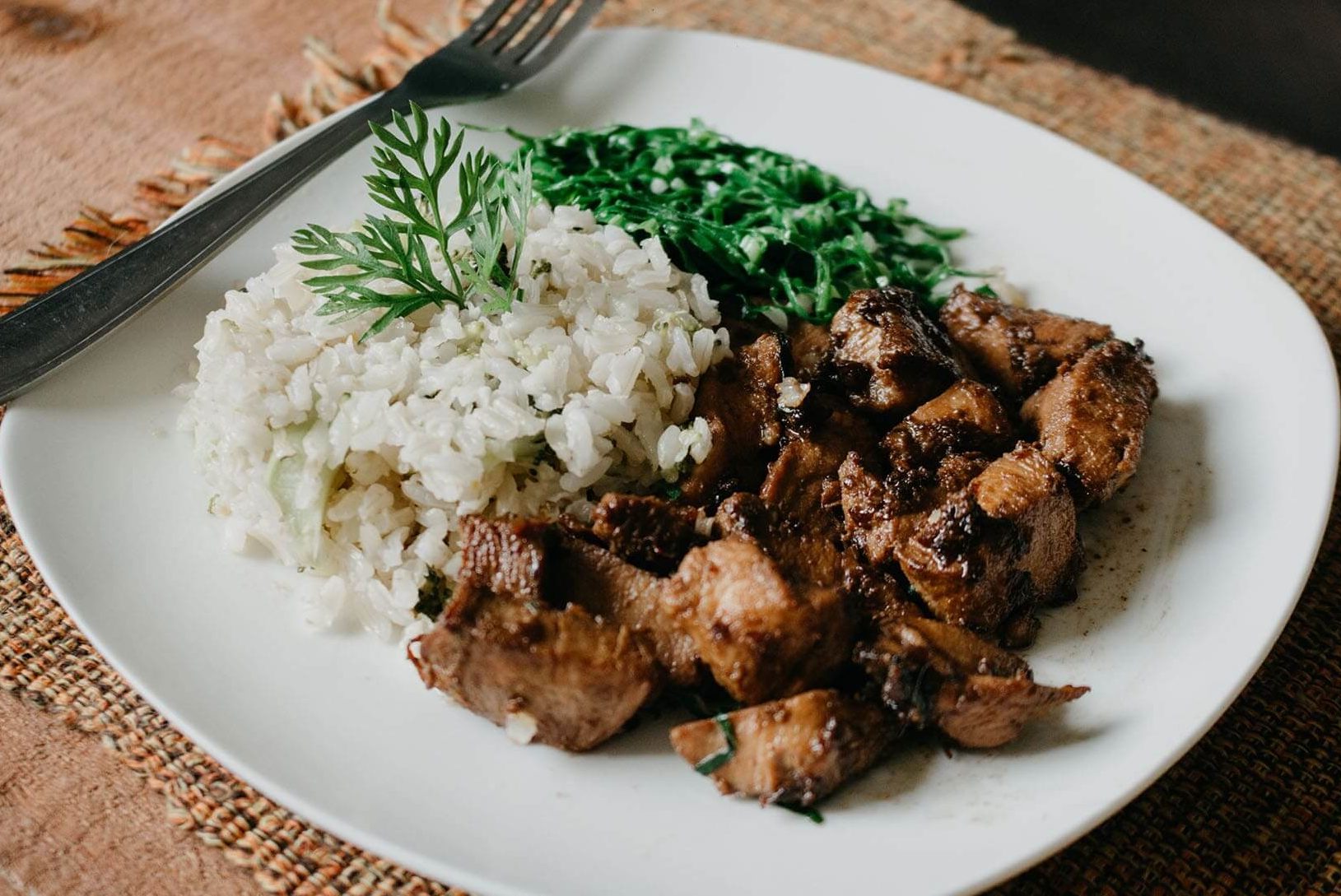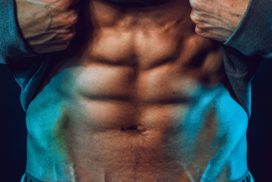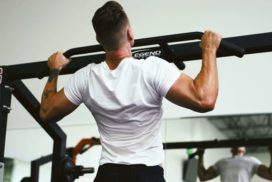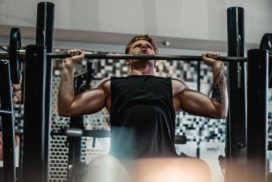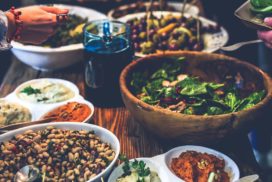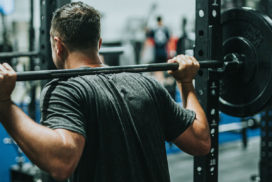The three common strategies of eating to improve your physique are bulking, cutting, and maintaining. Bulking is done by eating more calories than the body burns per day to build muscle, cutting is done by eating less calories than you are burning per day to lose fat, and maintaining is done by eating at maintenance calories so you neither gain nor lose weight.
There are multiple approaches to bulking. The main ways to bulk that are used are clean bulking, lean bulking, and dirty bulking.
Clean bulking is essentially eating in a caloric surplus with “clean” foods, instead of with less healthy sources of calories like fast food, donuts, and candy.
Lean bulking is similar to clean bulking however emphasizes staying lean and eating in a more shallow caloric surplus in order to make the amount of fat you gain minimal.
Dirty bulking is consuming a high surplus in calories made up of “unclean” foods. When dirty bulking, you are at liberty to eat whatever you want and fat gain is not a factor in deciding what or how much to eat.
Of these three, the perfect medium for getting the most results out of the bulk is clean bulking. This is because a clean bulk allows you to stay in a large enough caloric surplus to maximize building muscle, prioritizes highly nutritious food, and doesn’t lead to more fat gain than is necessary.
To pull off a successful clean bulking phase, it is essential to eat high protein foods with good nutrient and mineral content. These are the foods that make up the following list and will be the most effective for adding on muscle.
1. Chicken Breast
One of the best foods you should eat on a clean bulk is chicken breast. Chicken breast supplies high quality protein as well as zinc and other vitamins that the body needs.
Eating chicken breast is ideal for bulking due to the variety of ways there are to prepare it, its taste, and its high protein content. Chicken breast is also easy to use for meal prep and has one of the best macronutrient ratios of all the lean meats.
One chicken breast contains 250-300 calories, 0g of carbs, 40-45g of protein, and 15-20g of fat.
2. Organic Milk
Next, organic milk is a staple in well-balanced and productive bulking diets. While commercial milk may contain excessive amounts of estrogen, organic grass-fed milk is a healthy, natural way to get in all 3 macronutrients as well as vitamin D, calcium, and B-vitamins.
Organic milk is good for a clean bulk because it contains a high amount of protein and goes well with many meals, making it convenient and effective for building muscle.
1 cup of organic milk contains around 120-150 calories, 10-15g of carbs, 10-15g of protein, and 5-10g of fat.
3. Fish
Fish are another, excellent source of protein, amino acids, fatty acids, and micronutrients.
Overall, the best fish to eat for clean bulking is salmon, however there are many different kinds of fish that are all viable choices. Along with salmon, tuna and tilapia are also both high in protein and are packed with nutrients.
There are different species of salmon so the calorie content will vary. 1 pink salmon contains 170-200 calories, 0g of carbs, 30-35g of protein, and 4-8g of fat. 1 king salmon contains about 270-320 calories, 0g of carbs, 30-35g of protein, and 15-20g of fat. 1 sockeye salmon contains 250-300 calories, 0g of carbs, 35-40g of protein, and 14-18g of fat. And 1 coho salmon 220-260 calories, 0g of carbs, 35-40g of protein, and 8-12g of fat.
Tuna contains 100-150 calories, 0g of carbs, 40-45g of protein, and 1-5g of fat per 100 grams. Tilapia contains 100-150 calories, 0g of carbs, 25-30g of protein, and 2-6g of fat per 100 grams.
4. Eggs
After fish, eggs are an additional food item that is great to use when on a clean bulk.
Eggs are one of the best superfoods and have almost every vitamin and mineral the body needs. They are a good source of the micronutrients selenium, iodine, and choline, and are a good source of the macronutrients fat and protein with around 12g of protein per egg.
A single egg contains 60-80 calories, 0-1g of carbs, 8-14g of protein, and 3-5g of fat.
5. Bison
Along with chicken breast and fish, bison is one of the better meats for a gaining muscle on a bulk.
Compared to beef, bison has more protein per calories as well as higher amounts of minerals such as iron and zinc. Bison also has a high amount of fatty acids and tends to have a slightly better taste.
Per 100 grams, bison contains 150-200 calories, 0g of carbs, 24-28g of protein, and 5-10g of fat.
6. Avocado
Following bison, avocados are at the other end of the spectrum with almost no protein but plenty of fat and carbohydrates.
There are many reasons to eat avocados but the main advantages come from their phytochemical content, antimicrobial effect, and the monounsaturated fat they provide. Avocados are also very calorie-dense, meaning despite not being a high volume food, they contain a large number of calories. This makes them great for bulking because you can eat several avocados to increase your caloric intake without feeling as full as you would from other foods like blueberries or watermelon.
1 avocado contains 200-300 calories, 12-18g of carbs, 2-5g of protein, and 20-30g of fat.
7. Granola
Lastly, granola is a good food to eat when on a clean bulk. Granola is essentially oats and nuts baked in honey causing it to have more calories with mostly the same volume compared to just oats by themselves.
Granola is high in fiber and protein and full of antioxidants. It also contains vitamin E and potassium, making it a healthy food for gaining muscle.
100g of granola contains 400-500 calories, 50-70g of carbs, 10-15g of protein, and 5-10g of fat.
Summary
To summarize, the top 7 foods for a clean bulk are chicken breast, organic milk, fish, eggs, bison, avocado, and granola.
There are many other options in addition to these, but based on nutrition and caloric content these foods are some of the best possible options to gain muscle and add size without throwing out your health and gaining unnecessary fat.
For more on bulking, cutting, and dieting, such as wether or not you need a calorie deficit to lose fat and if eating during a workout can help build muscle, click here.

